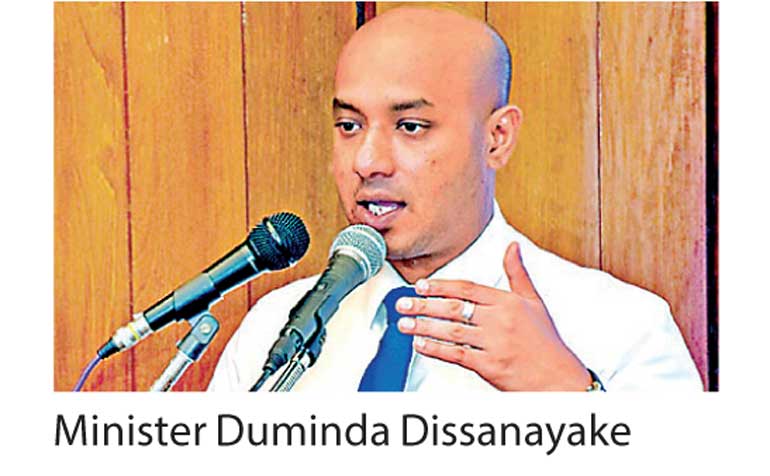Wednesday Feb 18, 2026
Wednesday Feb 18, 2026
Wednesday, 28 March 2018 00:10 - - {{hitsCtrl.values.hits}}

By Skandha Gunasekara
A decision was reached at yesterday’s Cabinet meeting that a special Cabinet Subcommittee will be appointed to decide on the usage of glyphosate in the country. Social Empowerment, Welfare and Kandyan Heritage Minister S.B. Dissanayake made this statement while addressing a press briefing held at the SLFP headquarters.
“It has been decided that a Cabinet Subcommittee, which will include experts in the subject, will be appointed by the President to look into and decide on the usage of glyphosate,” the Minister said. The Minister said t hat two Cabinet papers had been submitted, one by Agriculture Minister Duminda Dissanayake and the other by Plantation Industries Minister Navin Dissanayake, on the pros and cons of the use of glyphosate.
Last month the National Economic Committee presided by President Maithripala Sirisena unanimously decided to lift the arbitrary ban imposed on glyphosate, a widely-used weedicide, in light of overwhelming scientific consensus that the substance was not harmful to human health.
“The 10-member council unanimously approved that the ban imposed on glyphosate should be lifted as it has now been scientifically proven that the substance is not harmful to human health, while recognising the concerns raised by various industries, particularly the tea sector,” NEC Secretary General Prof. Lalith Samarakoon told the Daily FT.
The tea industry in particular has been lobbying for at least partly lifting the ban on glyphosate on the grounds that it has hit production severely and pushed some plantations to use different weedicides that are considered to be more toxic and this is endangering exports.
Plantation Minister Naveen Dissanayake earlier this month criticised the ban as an “unscientific and short-sighted policy”, repeating appeals to the Government to change the ban.
The restriction on glyphosate has resulted in a thriving black market and the smuggling of substandard glyphosate into Sri Lanka, the Minister stated.
The ban has also resulted in alternative weedicides with higher levels of toxicity being used by the industry. A recent laboratory report had flagged increased levels of toxicity in Ceylon Tea in exports to Japan, resulting in concerns that Japan would reduce its purchase of tea.
“We have conducted tests on samples from all factories and we are confident toxicity levels are now normal,” Dr. Pethiyagoda said. “However, if the glyphosate ban is lifted then this problem will be solved.”
He explained that a new weedicide could not be introduced as it needed at least four to six years of testing and glyphosate was accepted in many countries around the world while its alternatives were not. Dr. Pethiyagoda estimates that last year about 20-30 million kilos of extra tea could have been produced, resulting in Rs. 16 billion in excess revenue if not for the ban.